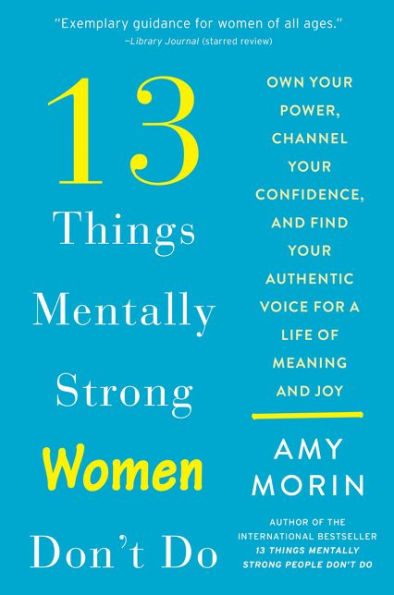By Olivia Schmid | | Layout Assistant

In the third installation of my miniseries on Amy Morin’s 13 Things Mentally Strong Women Don’t Do (13TMSWDD), the focus will be centered around self-doubt and overthinking: why we do it, why it’s bad, and what to do instead.
I don’t know about you, but college (especially this year) can bring about a LOT of self-doubts — whether it be about academics, social climate, or whatever else. None of these things have gotten easier given the current pandemic and the election this past week.
The truth of the matter is that it’s way easier to say “stop doubting yourself” than it is to actually stop doubting yourself. Morin explains that the conversations you have with yourself will either (a) fuel your confidence in making progress or (b) rob you of the mental strength you need, and already have, to take action and make each day a great day.
As you probably already know, self-doubt is a slippery slope. One minute you’re fine, the next, you’re questioning everything you’re doing and wondering if it’s good enough. This is when self-doubt seeps in—when you start to think of past negative experiences or imagine all the bad things that could happen as a result of your actions right now.
When you start doubting yourself and your abilities, there is a plethora of things it can lead to, and none of them are great. Morin lists them as follows:
- More discomfort with the unknown (although uncertainty is an inevitable part of life, people who struggle with self-doubt believe uncertainty is intolerable)
- Greater need for validation from other people, who in reality aren’t any more qualified to make decisions on your behalf than you are
- Lower self-esteem (naturally)
- Higher degrees of anxiety and depression
Morin writes that there are ways to combat self-doubt before it gets too bad. Let me first start by explaining the things that are NOT helpful: believing every single little thing your insecurity tells you, conflating fear with intuition, allowing your emotions to cast doubt on your ability to succeed, and waiting until you feel 100% confident and qualified before proceeding.
Instead, try collecting the evidence. Ask yourself, “What evidence proves my doubt is right?” If your self-doubt is rooted in truth, then you have room to gain more skill, practice, and get more experience; however, if your self-doubt is mostly irrational, then try to change your thinking (which we’ll get into later).
Morin encourages the reader to embrace just a little bit of self-doubt. Use your uncertainty about the situation to fuel your effort, and you might surprise yourself. You’ll put in more effort when you think there might be a chance you will fail, so naturally, you’ll work harder, and in turn, you’ll combat self-doubt along the way. Also, the emotional turmoil you put yourself through when you’re doubting yourself is oftentimes way more painful than the worst-case scenario itself.
While we’re at it, let’s talk about worst-case scenarios. They’re often the product of overthinking, which includes one (or both) of two destructive thought patterns: ruminating and incessant worrying.
Ruminating is when an individual focuses on their problems, things of the past, or things that just cannot be changed. Incessant worrying, on the other hand, regards negative predictions.
Both of these ways of overthinking are negative; they don’t serve a purpose that benefits you in any way, shape, or form. Overthinkers tend to ask for advice that they inevitably refuse to take to heart, and they rehash situations with anyone kind enough to listen. Are you guilty of this, too? Overthinking makes life hard. It makes it harder to bounce back, causing you to relive harmful thinking over and over again, reduces your resilience, and interferes with your sleep.
Ahh yes, sleep… or lack thereof. Those restless nights when your brain just can’t stop running inside of that head of yours—no matter how tired you are. For me, this is when I tend to overthink the most when I have nothing to distract me from my own thoughts.
So how do we stop this? Morin claims that we should first differentiate between overthinking and problem-solving; it’s all about the mindset. Is there a solution to this problem? Are you focusing on the problem, or searching for a solution? What are you accomplishing by thinking about this?
A big takeaway about your mindset is that it’s possible to merely coexist with that overthinking part of you. It doesn’t have to consume you. You can do this by practicing mindfulness skills. Pay more attention to the happy parts of your life, and take a moment to appreciate the way you feel during those happy moments. Then, make the conscious choice to focus on what you can control. After all, the goal of mindfulness is to pay attention to the present moment without judgment.
Remind yourself often that you can still succeed in life even when you’re feeling self-doubt. Self-doubt is an emotion, and emotions are human. If you’re struggling right now, you’re human. You’re fine, you’ll be okay—regardless of any self-doubt and overthinking you catch yourself in.
And that’s the gist.
First-year Olivia Schmid is a Layout Assistant. Her email is oschmid@fandm.edu.